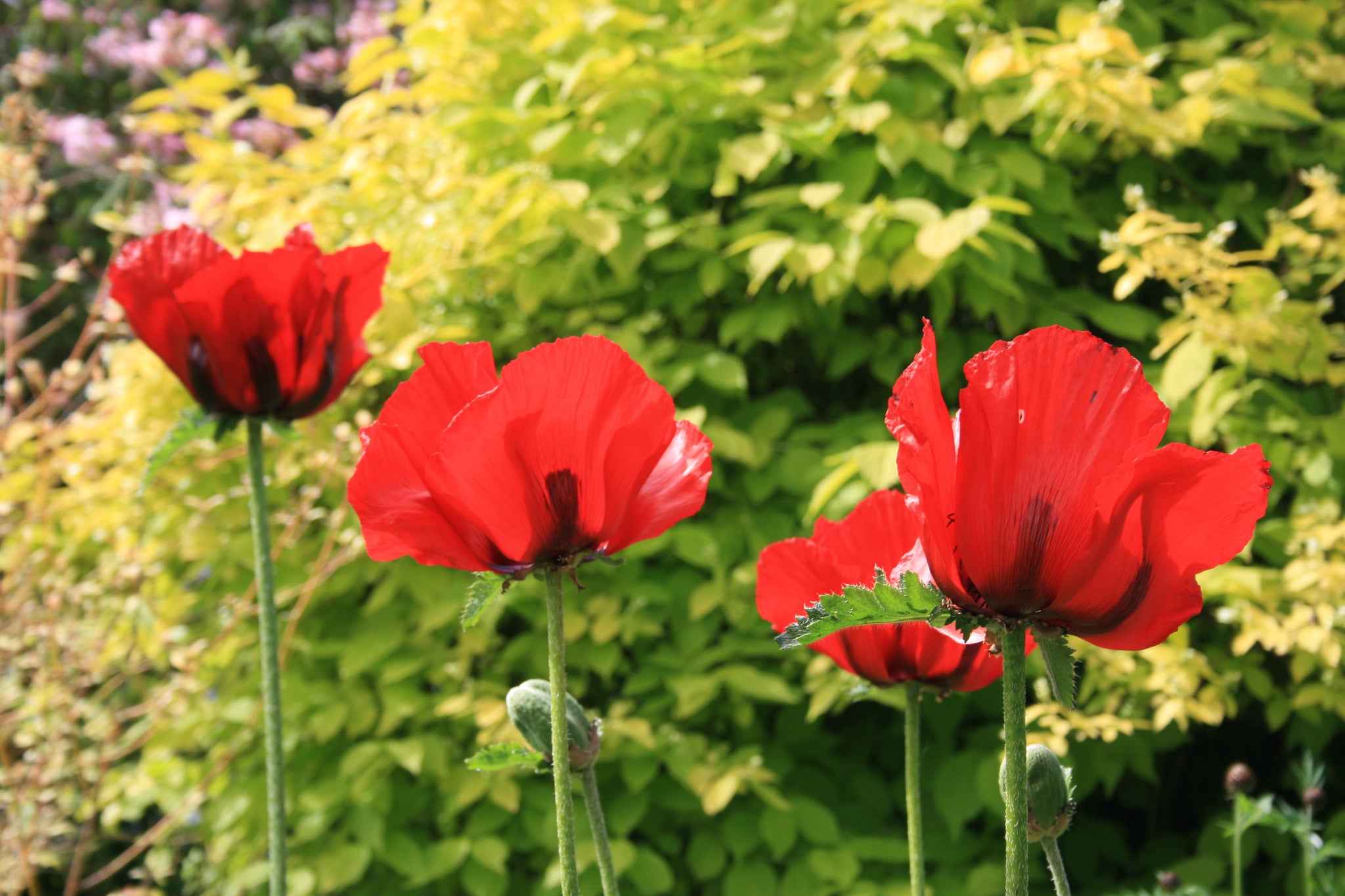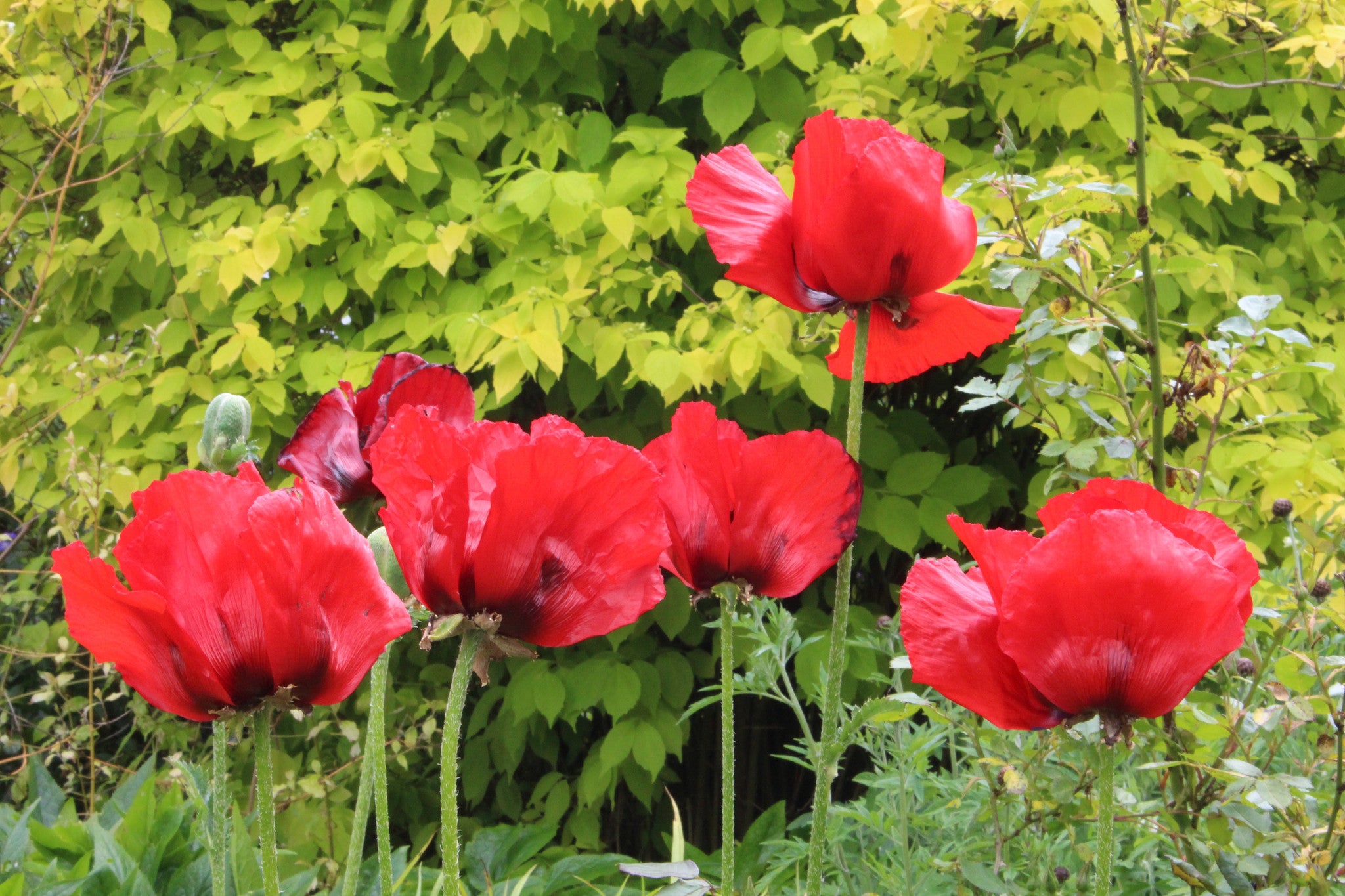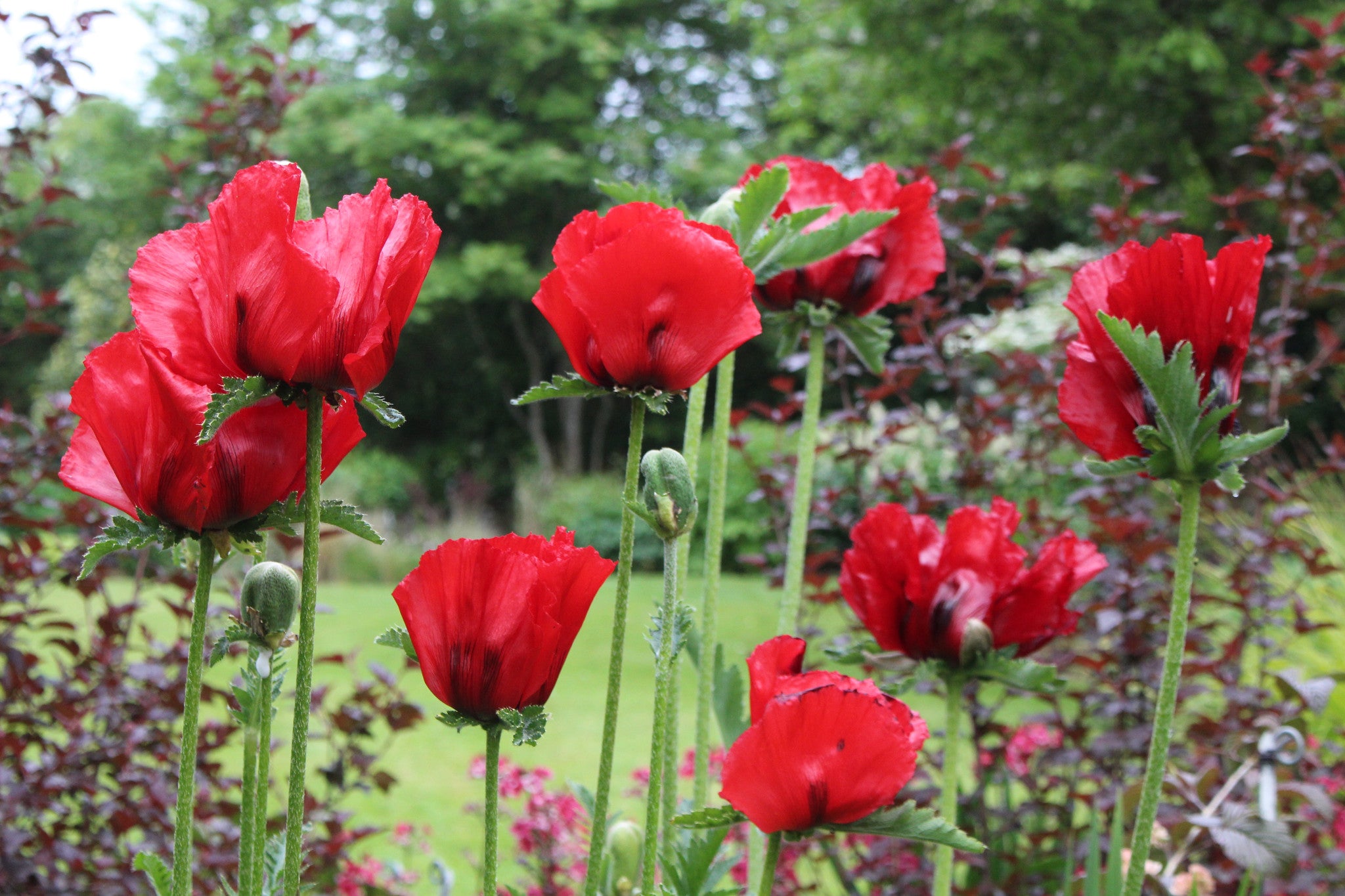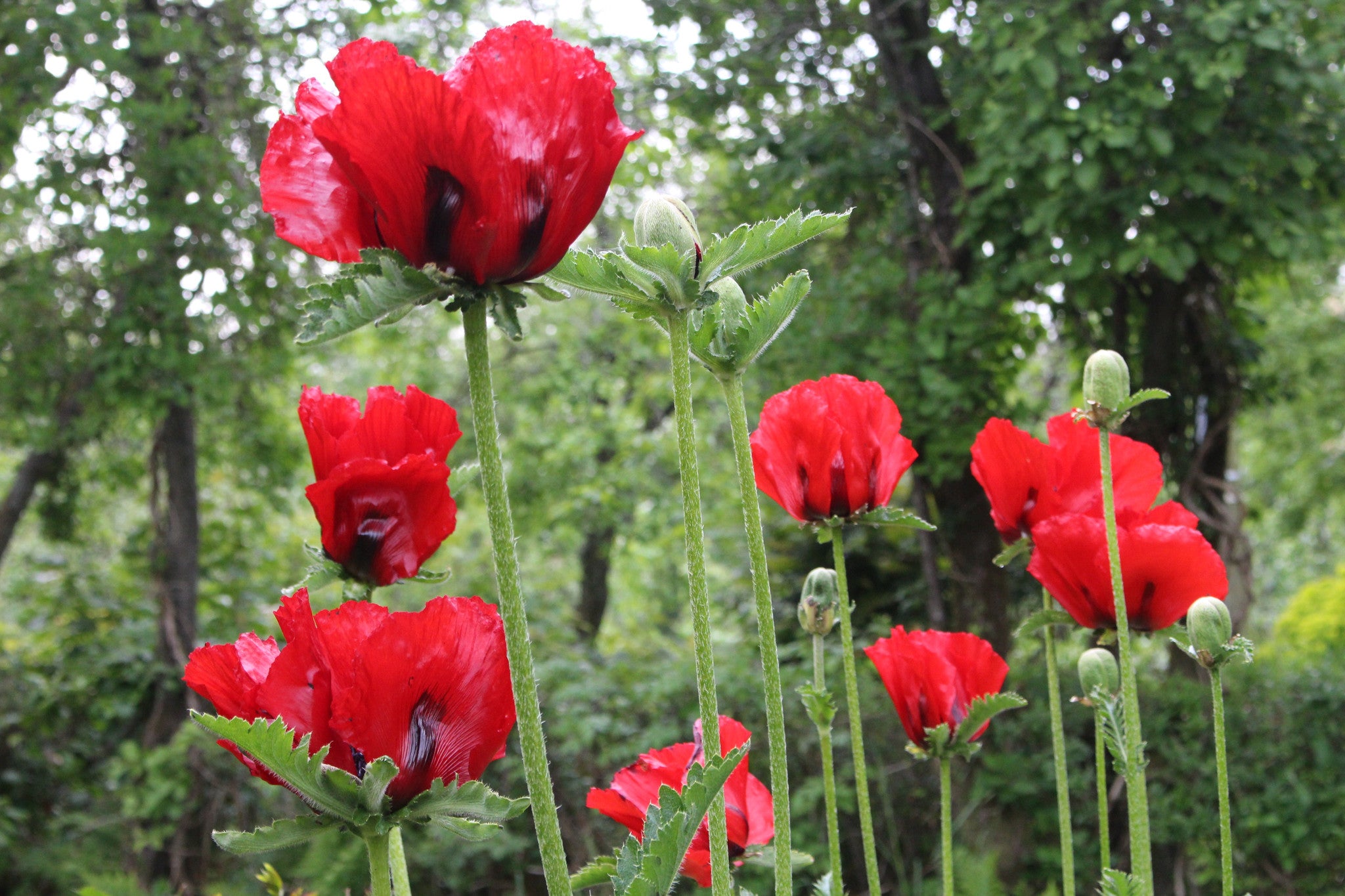Papaver orientale (Goliath Group) 'Beauty of Livermere'
Approx. 0.5 litre pot
About this cultivar:
Papaver orientale (Goliath Group) 'Beauty of Livermere' is for the adventuresome gardener and not the faint-at-heart. This flamboyant beauty seduces us with her gorgeous oxblood red flowers. Marked by an ebony blotch at each base, the overlapping, crepe-paperlike petals gather around velvety jet black centers while lounging on tall sturdy stems. A restful counterpoint to the large hot-headed blooms, the bushy bluish green bed of pinnately lobed, toothed and hairy foliage requires a hard cut after blooming. Grows quite tall.
- Position: Full sun, partial shade
- Soil: Almost any soil, grows well in Ballyrobert
- Flowers: June, July
- Other features: -
- Hardiness: Fully hardy, grows well in Ballyrobert
- Habit: Clump forming
- Foliage: Deciduous
- Height: 90 - 120 cm (3 - 4 ft)
- Spread: 60 - 90 cm (2 - 3 ft)
- Time to full growth: 2 to 5 years
- Plant type: Herbaceous Perennial
- Colour: Green, red
- Goes well with: Grasses
About this genus:
Papaver (pap-a-ver) is a genus of 70–100 species of frost-tolerant annuals, biennials, and perennials native to temperate and cold regions of Eurasia, Africa and North America. It is the type genus of the poppy family, Papaveraceae. No one really knows the origin of the name!
Wielded by man since prehistoric times, Poppies have long been associated with sleep and oblivion, and after the First World War, the Flower of Forgetfulness ironically evolved into a symbol for remembrance. Generally distinguished by nodding buds, solitary fleeting flowers gracing long stems, and decorative seed heads, these plants appreciate a somewhat dry position. However the cultivars we have here will also do well in wet clay - we know this because we grown them in our own wet-clay garden! In fact we have grown some cultivars under trees (you won;t read about that). So in general - any soil that isn't a pond and sun to part-shade.
As for partners; try them on their own or with grasses!








